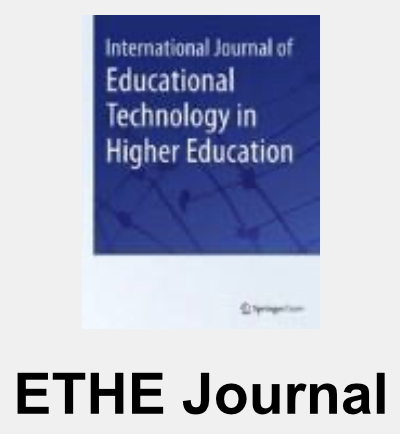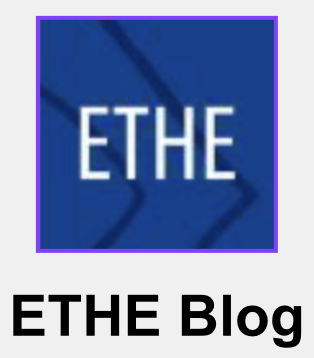A new industrial PhD collaboration takes off: “Making visible the invisible. Data-driven analysis of scientific literacy through video games”
? This industrial doctorate grant is published in GENCAT portal at this link
?️ Deadline: 18 SEPT
Edul@b and GECON Foundation are proud to announce a joint PhD research project in the context of the Programme “Industrial PhD” supported by the Catalonian Government.
This PhD project attempts to deal with such challenges of tracing learning and skills development connected to video gaming. The research will focus the video games activity with impact on scientific literacy and STEM soft skills through data-driven approaches. More specifically, the PhD will develop a system for data tracing and integration into a dashboard supporting the “learning visibility” for either teachers and students. The activities will include, from one side, algorithmic development and the application of machine learning techniques to refine the technological settings; from the other side, the array of experimental settings to deploy a usable digital dashboard and/or app that will allow teachers and learners to gain awareness over the learning processes relating to scientific literacy.
We have to bear in mind that an industrial phd is a three-year industrially focused research project and phd education which is carried out in a collaboration between a company, an industrial phd candidate and a university. Therefore, the candidate will work into the dynamic environment of industrial research on video games led by GECON; and in contact with the academic research on elearning led by Edul@b.
The project is a crossover of research interest between GECON Foundation and UOC-EPCE/EDUL@B group. The common research motivation deals not only with the design, development, user-testing and dissemination, but also with the overall reflection on the new skills needed in “educational data science”, as an emerging subfield for professionals devoted to data science and data ecosystems in the specific phenomenon of lifelong learning.
GECON has demonstrated expertise in advanced implementation and measuring (using biometrics and psychometric methods) as shown by its participation in several projects and its scientific production in the area. As for UOC, consolidated research group Edul@b have run several projects on digital competence, open education, teachers professional development. Moreover, the group has coordinated several PhD thesis, having the capacity to operate in guiding researchers’ initial training.
The research problem in a nutshell
In a context of raising concern about the skills shortage in Science Careers, we mapped relevant studies which showed that gamification in science education can improve scientific thinking skills. These included video games as a technological tool for supporting certain elements in science education like curiosity, fun in failure, flow states or feedback. Both, well-structured classroom lessons and video games, have: (a) clear learning goals; (b) opportunities for practice and reinforcing expertise; (c) monitoring of progress; and (d) adaptation to the level of mastery of the learner. Hence, video games have the potential to be used as a stimulation tool in education. And this look to apply particularly for young girls aged 13-14, who were recurring gamers (>9 h/wk): they were more likely to pursue a Physical STEM degree.
However, video games have been part of people’s ludic activity since the 80s. Why has the educational system been so slow in enhancing their potential for STEM skills development?
There are several reasons, among which we should consider the cultural defiance over video games seen as pernicious, addictive, part of an “geeky”, male culture far from the traditional approach of academic learning.
With the development of the video games industry and their incredible affordances (the inclusion of realistic historical settings, artwork of the highest quality, functions that trigger complex logical, mathematical and social abilities) the reliance on video games as a positive environment for learning has improved within the public opinion. The research has furthered in the analysis of positive impacts for several areas of lifelong learning.
However, the complex settings of video games have not been specifically designed to trace learning. Therefore, it is difficult for learners and for educators to gain awareness on the way the learning process is developing.
For video games to gain acceptance as a learning environment amongst education and parents the evidence shown in the learning process should be knowledgeable, synthetic and easy to gather. The advancement of data tracking across digital spaces and particularly during video gaming could be the solution, if properly and effectively integrated to the teachers and learners’ interactions along video game playing. Learning analytics and dashboards supporting learning are advancing quickly nowadays, but educational integration of data traces from video games are still at its infancy.
To this end, a good balance between educational design, video game analysis and data science are required. This is then to be systematically transmitted and organized in the form of products that can be connected to everyday teaching and learning practices to measure the size of STEM soft skills acquisition through the act of playing commercial video games.
It is at the crossroads of such a relevant problem, seen as an opportunity for development, which GECON and Edul@b aim to operate!
About the candidate
The project will unfold in three years in which the young researcher will be engaged in a stimulating activity of I+D between GECON and UOC. The research activities will be linked to:
- Conceptual pedagogical knowledge on scientific literacy and video game learning;
- Identification and relationship between Steam Soft Skills (3S), data-driven and statistical analysis approach to tracing scientific literacy and STEM related soft skills development through video game playing;
- Addition of algoritmia in an existing dashboard that connects commercial video games playing to soft skills assessment, learning and development, implementation of pilot and testing sessions and evaluation and improvements of those algoritmia.
- To train teachers for further usage designing learning recognition over the abilities achieved through video games as traced by the platforms, as well as over teachers’ professional development.
- User test of the refurbished dashboard to analyse teachers’ opinion on teaching and learning effectiveness supported by the dashboard.
- To analyse the perceived technology acceptance as means of intention of usage.
We are searching for a candidate with good data science skills and interest in the area of video games and education.
How to apply: Hurry up!
We are now collecting initial expressions of interest to which will follow interviews.
Please send your CV, eventual portfolio and brief motivation letter to:
Flavio Escribano – fescribano@gecon.es
please cc to: Montse Guitert – mguitert@uoc.edu and Juliana Raffaghelli – jraffaghelli@uoc.edu
Deadline: 18 September 2020






